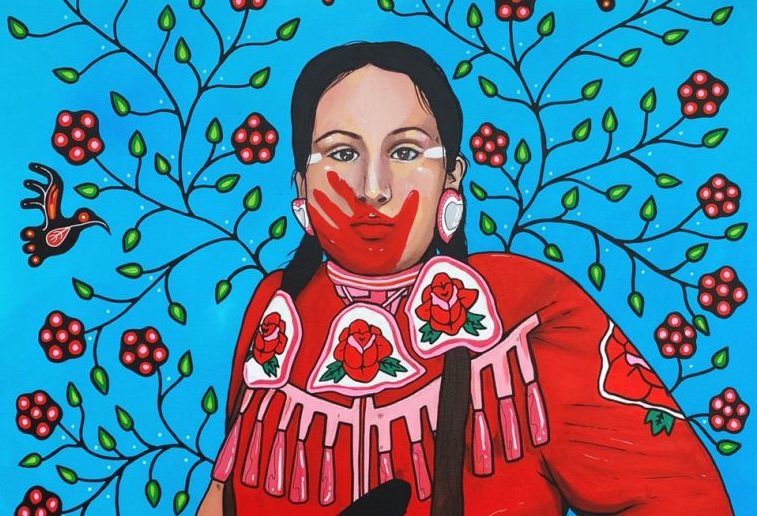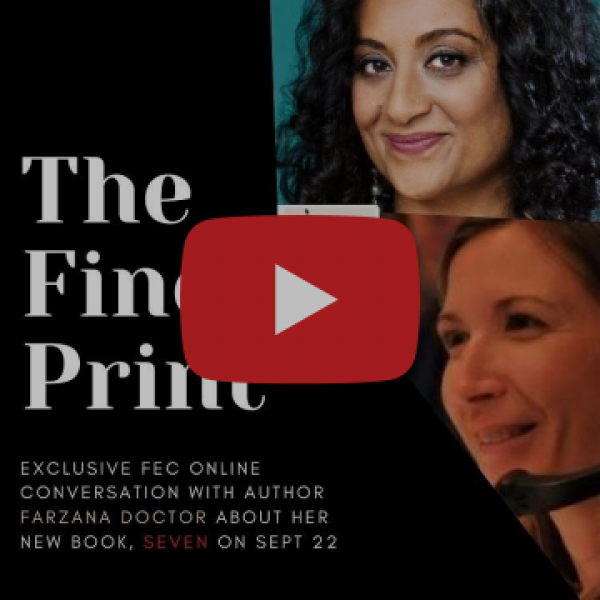
Is it a novel? Long poem? A collection of vignettes? Leanne Betasamosake Simpson isn’t concerned with what you call the book. She did not set out to write a commercial novel with Noopiming: A Cure for White Ladies.
The Michi Saagiig Nishnaabeg author, scholar, musician, and storyteller draws on Anishinaabe storytelling traditions, which don’t follow the construct of the Western narrative — protagonist, antagonist, conflict, climax, resolution. “I still wanted to tell a story in longer form with the characters that had come up with in (her earlier works) Islands of Decolonial Love and This Accident of Being Lost,” says Simpson. “I fell in love with these characters and carried them with me in my life.”
The result is a radically different kind of novel and unique reading experience. As Alexis Pauline Gumbs blurb: “The book is poem, novel, prophecy, handbook, and a side-eyed critique all at once.” Some pages have just one sentence or paragraph, which Simpson describes as, “very much a reflection of a contemporary Indigenous experience under colonialism where you have these pieces of yourself, pieces of culture, pieces of language and your sort of always trying to put them together.” The white space also allows the reader to take a moment to pause, reflect, think. Let the language and the story to sink in.
Relationality plays a large role in Anishinaabe storytelling and this book: everything that is alive has a spirit. The seven main characters in Noopiming appear and reappear as humans and non-human forms, such as geese, caribou and maple trees. They exist in a collective time and space in a constructed urban-settler world and natural spaces such as parks, the lake, the sky.
Says Simpson: “The book is very much about the present and building Anishinaabe worlds with whatever we have. I see that practice as being something that has been a beautiful form of resistance that so many Anishinaabe families have engaged in and so many women in my family have engaged in.”
A circular idea of time and space — versus a linear past, present, future timeline — is also something Simpson incorporated into the work. Circles and cycles are important in Anishinaabe thought and Noopiming is structured so that a reader can open it and start reading at any page, with any character.
Simpson produced several multimedia assets to help bring the book to life while launching it during a pandemic, when everything has gone virtual. She recorded a short, four track EP called the Noopiming Sessions over original music composed with her singer songwriter sister, Ansley Simpson. And Solidification is a video collaboration blending an immersive reading (by Simpson) over a wintery soundscape of drone and vocal composed by Ansley Simpson, along with visuals from Sammy Chien of Chimerik 似不像.
Noopiming: The Cure For White Ladies is Simpson’s sixth book. She was the featured guest in January 2021, on The Fine Print, a conversation series with contemporary feminist authors hosted by Lana Pesch in the Feminist Enterprise Commons (FEC).
The Fine Print is hosted and produced by Lana Pesch in the Feminist Enterprise Commons.
Related Readings

Decolonizing the Trading Post
Art: “Patience” by Chief Lady Bird. During the long drive to my new home in northwestern Ontario, I pass numerous Trading Posts that line

Decolonizing Our Hearts
A workshop on the topic provokes months of contemplation on how to see the world anew.

What Pipeline Protests Tell Us
The status quo can be no more: the clear and compelling links between environmental rights, Indigenous rights, and women’s rights.






